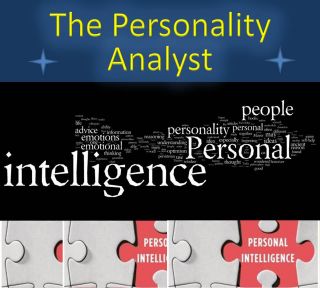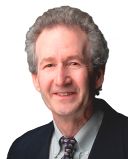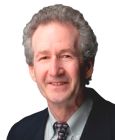Intelligence
Biography Reveals Personal Intelligence, or Does It?
People can look smarter than they are or hide their abilities behind a persona.
Posted May 20, 2014

Can we assess personal intelligence from an individual's biography? I believe we can. We use our personal intelligence to understand personality and its expressions. Personality is the organization of our motives and emotions, thoughts, actions and self-control. As we think about people, we leave behind evidence of our understanding in the ways we discuss them and in the life choices we make.
If we examine the biographies of well-known people, we should be able to discover something about how well they think about personality. We may have noticed that some public figures—in sports, the arts, or politics seem able to reason startlingly well about personality, while others seem less clued in. People who are high in personal intelligence might describe how a personal limitation entered into a problem they faced on the job or how they adjusted their behavior to accommodate people whose social styles and goals were different from their own. People lower in personal intelligence might make few such comments, if any.
Psychobiographers are researchers who specialize in sorting through records of well-known individuals in order to understand their personalities and patterns of behavior. These biographically-minded psychologists have charted various personality qualities of U.S. presidents, the kings and queens of England, and other public figures such as the chess master, Bobby Fischer. Researchers specializing in U.S. presidents have estimated those leaders’ IQs, extraversion, conscientiousness and other qualities, so there’s ample reason to think that psychologists could also chart the personal intelligence of public figures.
Michael Jordan, the star basketball player and sports-team owner is an example of a celebrity who exhibits signs of high personal intelligence. Jordan chose a sport he loved; but beyond that, he reported using motivational tricks that reflected his understanding of personality and its possibilities. For example, when he tired of practice, he drew on personal memories to challenge himself. When Jordan failed to make the basketball team at his junior high school, he was mad at himself. He knew he was a better player than some of the students who made the team and he regretted not working hard enough. Later in his career, Jordan drew on that memory—his name missing from the team roster—to drive himself to work harder.
To learn more about Michael Jordan—or any public figure’s abilities—we need to comb the record about the individual, looking at interviews, autobiographies, biographies, and similar sources. But even if we do this as conscientiously as possible, at least two potential sources of error remain. I’ll refer to the first error as the “my people problem”—which can lead psychobiographers to overestimate personal intelligence, and refer to the second error as the “Trump conundrum,” which can lead psychobiographers to underestimate personal intelligence.
The "My People Problem"
In a demonstration study conducted in my laboratory to test the feasibility of estimating personal intelligence, we asked a small number of participants to rank eight business leaders as to their personal intelligence. Oprah Winfrey was rated particularly high. Many of her statements to the press indicate her interest in and reasoning about personality. Although she initially ran her business like a family, she said, she learned that “There has to be a system of communication because everybody doesn’t operate the way you do. People handle power differently, and it means to other people what it doesn’t mean to me.” At another point, she explicitly emphasized her empathy toward others: “I think that the show’s been successful because I’m always aiming for the truth. I relate to the core of everyone’s pain and promise because I’ve known pain and promise…I know that I can talk about anything to anybody with a sense of respect and integrity.”
I suspect that Winfrey is quite high in personal intelligence, but it is also possible that I or someone else could overestimate her skills. One possible source of distortion is that influential individuals have many people who help them, as in the Hollywood story in which one powerful person says to another, “I’ll have my people call your people.” Though it may be a joke, powerful individuals do have “people”—assistants, consultants, coaches and others—who help them communicate. These people may help a public figure look better than they might were they responding solely on their own.
So, as good as Oprah is at relating to other people on television—and I do believe she is high in personal intelligence—it makes sense to leave room for the possibility that she is, not quite as good as she might seem, but rather has hired highly talented people who have helped enhance her skills—for example, by coaching her to communicate clearly about personality.
The "Trump Conundrum"
Although a person who expresses insight about himself and others is likely to possess personal intelligence, someone who makes obtuse comments about people might not necessarily be low in the ability. Consider the case of the real estate developer and media celebrity Donald Trump. Trump has shown a propensity for making comments that seem somewhat unrealistic or lacking insight about himself.
In one interview, Trump remarked, “Those who dislike me don’t know me, and have never met me. My guess is that they dislike me out of jealousy.” Given Trump’s wealth and power, there is surely some truth to his claim. That said, people dislike one another for many reasons. We might dislike others because we find them too self-controlled or not controlled enough, too loud or too quiet, or too agreeable or disagreeable.
At another time, Trump was asked about any presidential ambitions he might have. “I’m not running for President,” he explained in response to the question, “but if I did, I’d win.” Given the improbability that anyone—even including experienced politicians—might become president, this claim from a successful real estate entrepreneur seems more boastful than accurate.
It’s possible that Mr. Trump is high in personal intelligence but chooses not to express it. Judging from his media appearances and his television show, “The Apprentice,” Trump enjoys the public attention he receives. He could relish a public role of an overtly self-confident businessperson that isn’t quite his true self. After all, depicting himself as extremely confident enhances his media value. By comparison, commentators who are thoughtful, cautious, and readily acknowledge they could be wrong, rarely attract as much interest from viewers.
At another time, Trump remarked, “When you start studying yourself too deeply, you start seeing things that you don’t want to see. And if there’s a rhyme and reason, people can figure you out, and once they can figure you out, you’re in big trouble.”
From one perspective, this remark seems the very opposite of wisdom: Plato himself urged us to live examined lives—and here is Donald Trump contradicting him.
Yet probe deeply and Trump’s remark makes sense to me. We use our personal intelligence to anticipate the people around us. Trump’s understanding that “people can figure you out,” and his concern that, if he were understood, it could lead to “big trouble” in a competitive business environment, might reflect a lot of personal intelligence.
It is impossible to tell from these quotes whether Trump is high in personal intelligence and simply playing a character in the media, or whether he lacks knowledge of himself and others. Let’s call this the “Trump conundrum” after this uncertainty: that a person who possesses considerable personal intelligence may intentionally hide his skills.
Last Words on Psychobiography and Personal Intelligence
There are ways that psychobiographers can go wrong in estimating the personal intelligence of a given public or historical figure—two of those include the "my people problem" and the "Trump conundrum." Acknowledging those issues, I think it’s fair to claim that the portraits of individuals that emerge from biography and media reports can provide clues as to their personalities and that personal intelligence can be estimated from that information. We want to be careful not to confuse the estimate with the reality. We can rarely be certain about a specific individual from their biographical record alone. That said, to the degree that we can identify people high in personal intelligence, we can learn from those individuals—from studying how they think and act, and by considering the outcomes of being perceptive.
Notes
For more about personal intelligence, Mayer, J. D. (2014). Personal Intelligence: The power of personality and how it shapes our lives. New York: Scientific American/Farrar Strauss & Girard.
“...I started...thinking you could run a business like you run a family...[but]There has to be a system of communication because everybody doesn’t operate the way you do. People handle power differently, and it means to other people what it doesn’t mean to me.” (Oprah Winfrey quoted in LaGesse, Oct. 31, 2005, p. 44). Heeding her own voice. U.S. News & World Report, 44.
“I think that the show’s been successful because I’m always aiming for the truth. I relate to the core of everyone’s pain and promise because I’ve known pain and promise.... Having that understanding and that connection has really given me wings to fly because I know that I can talk about anything to anybody with a sense of respect and integrity” (Oprah Winfrey quoted in Kantrowitz, Peterson, & Wingert (Oct. 24, 2005) How I got there. Newsweek, 146, 48-62.
“Those who dislike me don’t know me, and have never met me. My guess is that they dislike me out of jealousy.” Donald Trump quoted in Friedrich, O. (1989, January 16). Flashy symbol of an acquisitive age. Time, 133, 48.
“I’m not running for President,” he told Newsweek in 1987. “But if I did, I’d win.” (Donald Trump quoted in Powell, B., & McKillop, P. (1987, September 28th). Citizen Trump. Newsweek, pp. 50-58
“When you start studying yourself too deeply, you start seeing things that you don’t want to see. And if there’s a rhyme and reason, people can figure you out, and once they can figure you out, you’re in big trouble.” Donald Trump quoted in Friedrich, 1989, p. 48, ibid.
Copyright © 2014 John D. Mayer




